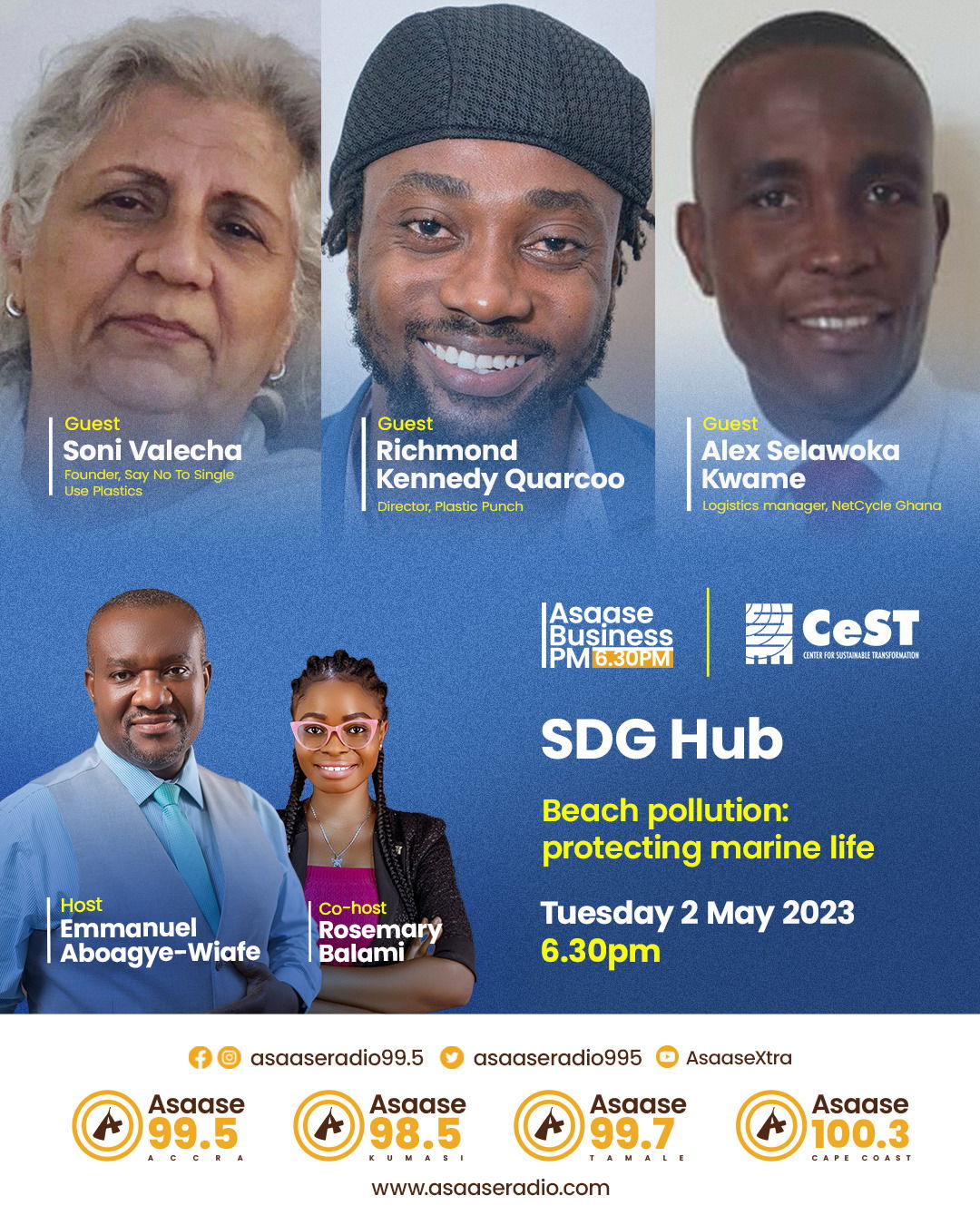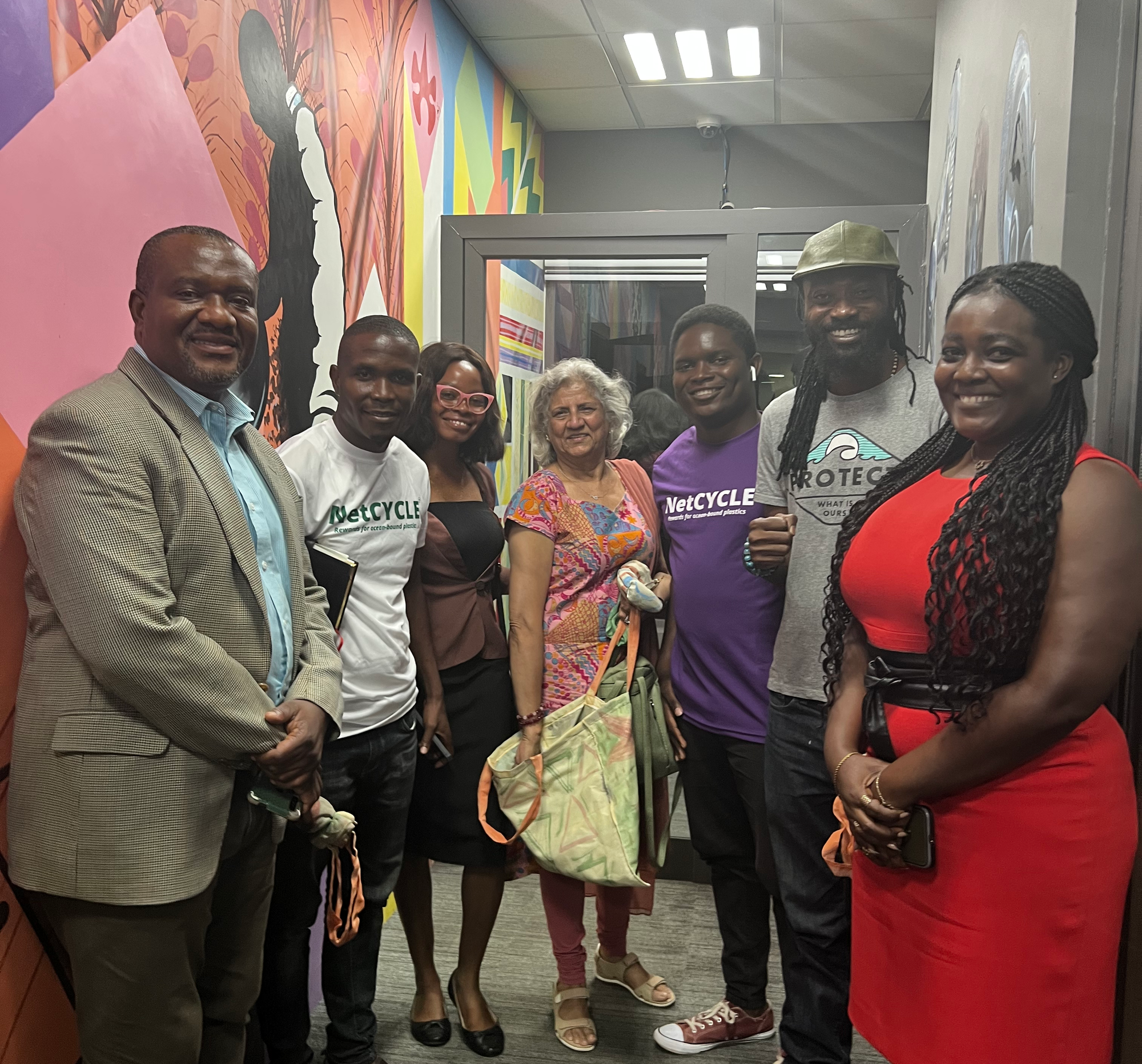
Article By: Rosemary Balami (National Operator YRE Ghana)
Ghana has over 500 kilometers of coastline that used to have a rich marine life, providing a livelihood for thousands of people - and a valuable source of food for the country. However, today marine pollution, particularly beach pollution, is a significant threat to human health, marine life and the environment Fishermen at some places are already experiencing getting more plastic than fish in their nets. According to Conservation International, up to 12 million metric tons are dumped into the worlds oceans each year. In 2021 that number reached 17 million tons, a number which is estimated to double by 2040.
Ensuring the protection of the ocean's ecosystems is very important as they cover 70 percent of our planet and provide food, energy and water. The ocean also absorbs around 25% of the world’s annual CO2 emissions, mitigating climate change and alleviating its impacts. However, it is estimated that by 2050, plastics will outweigh all of the ocean’s fish. The debris of waste and plastic have formed giant underwater garbage patches, with the largest being the Great Pacific Garbage Patch, including an estimated 1.8 trillion pieces of trash.
On the SDG Hub on Tuesday 11th April, the three guest; Richmond Kennedy Quarcoo from Plastic punch, Alex Selawoka Kwame from NetCycle Ghana and Soni Valecha from Say No To Single Use Plastics who are individuals working with NGOs that target marine pollution, shared their insights and expertise working with beaches and the coastal communities.

One of the main causes of beach pollution in Ghana is inadequate waste management. Many of the communities including the beaches lack proper waste disposal facilities, and as a result, garbage ends up in the water and on the sand. This not only destroys the natural beauty of the beaches but also poses a serious threat to marine life and human health. Plastic waste, in particular, is a significant problem, as it takes hundreds of years to degrade, and can cause serious harm to marine life if ingested.
Richmond lamented on the horrible state of Ghana’s beaches that has affected livelihoods to an extent of fisher folks along the coastal areas migrating to other neighboring countries. He also revealed that fishermen now fish more more plastics than fishes which was estimated by the United Nations to be the reality in 2050 but unfortunately Ghana is already experiencing. Furthermore, Single Use plastics has been one of the main pollutants of the beaches. Soni, who has been an advocate for the refusals of single use plastics, reiterated on the fact that she sees a possibility for Ghana to ban plastics as other African countries such as Rwanda has done.
She also stated that another stringent way to tackle pollution will be for super markets, malls to charge either 50p etc. for the plastic bags so that influences behavioral change in that the masses will begin to appreciate the need to send along reusable bags etc. when shopping. Alex also opined that, he doesn’t think Ghana has achieved the SDG Target 4.2 which states; by 2020, sustainably manage and protect marine and coastal ecosystems to avoid significant adverse impacts, including by strengthening their resilience, and take action for their restoration in order to achieve healthy and productive ocean but however when we put in the right collective efforts as a country because it’s not only the responsibilities of the authorities but the whole populace to tackle this menace.